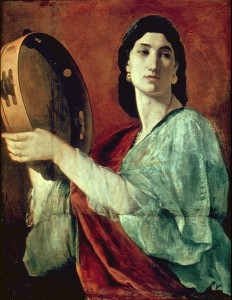 I spent the morning thinking about tears. Women’s tears. With a backdrop of planning a shiur to commemorate the fifth anniversary of Ami’s z”l death, I learned the story of a friend and the deaths of her three children. Then, remembering the car accident that killed a toddler in South Jerusalem just a few weeks ago, the essay about the end of sheloshim for Superman Sam Sommer z”l played in my mind. I thought about the tears of joy Ami would cry if she could see our daughters now. And the tears of sadness she is surely crying because she is not here with us. This meditation is the result.
I spent the morning thinking about tears. Women’s tears. With a backdrop of planning a shiur to commemorate the fifth anniversary of Ami’s z”l death, I learned the story of a friend and the deaths of her three children. Then, remembering the car accident that killed a toddler in South Jerusalem just a few weeks ago, the essay about the end of sheloshim for Superman Sam Sommer z”l played in my mind. I thought about the tears of joy Ami would cry if she could see our daughters now. And the tears of sadness she is surely crying because she is not here with us. This meditation is the result.
The last three lines are an allusion to my respect for the Women of the Wall and all women who pioneer expression of Judaism in their lives and the role of women as leaders, teachers, rabbis and scholars for Klal Yisroel.
Tears
The Mothers of Israel
Pass their tears
From generation to generation:
The grief and the longing,
The hope and surrender,
The breathless yearning,
Gifted mother to daughter
For millennia.
Daughters of Israel,
Your tears are a prayer,
An offering on the altar of our lives,
Rising to the Gates of Righteousness,
Summoning Sarah and Miriam,
Leah and Tamar, Rebecca and Dinah,
Rachel and Channa, Deborah and Penina,
Esther, Ruth and the daughters of Zelophehad,
Matriarchs and prophets, leaders and teachers,
The entire tent of women throughout the ages
To cry out:
Heal us, G-d of old.
Shelter us, G-d of love.
Make us whole.
Sisters of Israel,
You are our light.
You are our heartbeat.
Your sorrows are our plea
Before the Gates of Mercy.
Lead us into prayer.
Lead us from darkness to light.
Lead us in service to G-d’s Holy Name.
© 2014 Alden Solovy and tobendlight.com. All rights reserved.
Postscript: I am, to a degree, uncomfortable with the gender bias in this piece. Yet something feels true about it: that there’s a special character to women’s tears. My intent is to honor that character without diminishing the importance of men’s tears and emotions. I also wonder if the piece overuses references to the names of Biblical women or if the order of the names is disconcerting, taking the reader out of the prayer. I encourage your comments on these two issues. This meditation is a reflection of an idea I wrote about in piece of flash fiction called “Chava bat Chana.” Here are two more short, story stories about strong and spiritual Jewish women: “Sarah Rivkah: A Challah Baking Story” and “Bracha Simcha.”
Please consider making a contribution to support this site and my writing. For usage guidelines and reprint permissions, see “Share the Prayer!” For notices of new prayers, please subscribe. You can also connect on Facebook and Twitter. If you use or like this prayer, please post a link to Facebook, your blog or mention it in a tweet.
Photo Source: WikiMedia Commons
